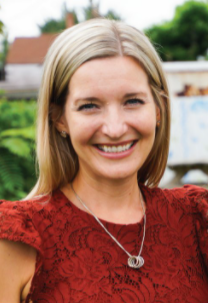Dr. Lesley Harris

Associate Professor
Creating supportive pathways to health and social care access for individuals disproportionately impacted by HIV/AIDS
Dr. Harris's research uses qualitative, arts-based, and community-engaged methods to create supportive pathways to health and social care access for individuals disproportionately impacted by HIV/AIDS, including older adults and persons with limited access to healthcare and substance use disorder treatment. Dr. Harris holds a Ph.D. in Social Welfare from the University of California, Los Angeles, and was selected as a Fellow for the HIV/AIDS Training Grant in the Social & Behavioral Determinants of HIV/AIDS Prevention at the UCLA Fielding School of Public Health.
She is currently a Co-Principal Investigator of a National Institute of Alcohol Abuse and Alcoholism (NIAAA) funded study entitled, Alcohol Misuse, Gut Microbial Dysbiosis and PrEP Care Continuum: Application and Efficacy of SBIRT Intervention (R01 AA030485). She collaborates with interdisciplinary teams, spearheading the development of cutting-edge interventions using community-based participatory research techniques. These interventions are designed to address significant health disparities, particularly for individuals grappling with addiction, stigma, and discrimination.
Over the past fifteen years, Dr. Harris has worked closely with international NGOs, including Save the Children, HIV and Health Care Support Centre, the International Rescue Committee, World Relief, and the International Medical Corps, to support psychosocial interventions and research. Her international work includes developing intervention strategies to support skipped-generation families (grandparents raising grandchildren) in the wake of the HIV/AIDS epidemic in Vietnam. Her findings have demonstrated the positive impact of community health models (peer support, self-help groups, and youth development) in populations lacking access to healthcare, thus reducing health inequities for those needing it most.
Dr. Harris's commitment to addressing disparities extends to close collaborations with community-based organizations locally and globally. Her focus is on co-creating strengths-based intervention strategies to enhance engagement and retention in HIV care, thereby reducing healthcare disparities.
